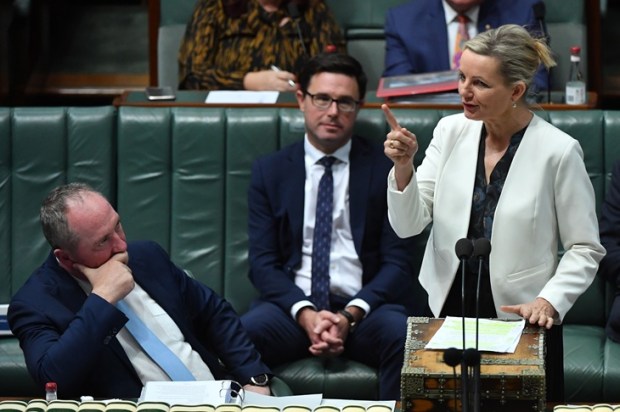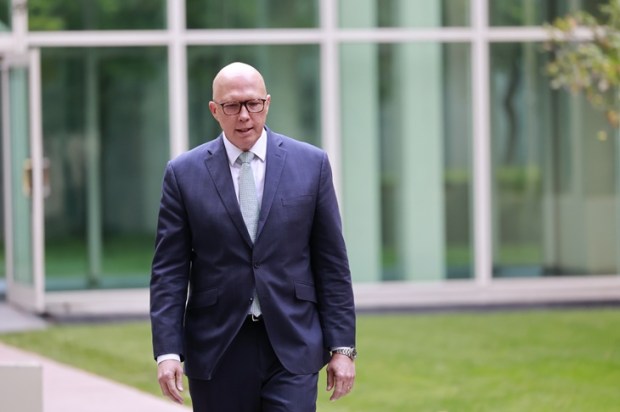How often do you get emails from someone who signs off with their pronouns? How often are you confronted in the workplace by management’s insistence on your identifying employees and clients by, and with, their pronouns? How often are we told that we must refer to people by the pronouns they demand we use?
Far too often. It’s become one of those Woke, annoying, irritations that drive one to distraction.
This month’s flap over the Cambridge Dictionary extending the definition of ‘woman’ to include ‘an adult who lives, and identifies as female though they may have been said to have a different sex at birth’ highlights the prevailing progressive demanding we all conform to its dictates.
Likewise, those who ‘self-identify’ as a man or woman (or whatever), while born the other, assert they have the right to decide how we describe them.
They don’t.
The only pronoun anyone has a ‘right’ to assert is the first person singular. The Perpendicular Pronoun. I.
That is you referring to yourself. For the rest of us, that is both a given and none of our business.
Second person singular – you – is neutral.
But third person singular – he, she, and it – are another matter altogether. You have absolutely no right to control how other people refer to you in the third person.
Third person pronouns, and the allocation of gender to another person in using them, is the prerogative of the user, not the person being referred to.
It’s a matter of perception: how the perceiver perceives you. Not the other way around.
If the perceiver’s frame of reference doesn’t allow for your idiosyncratic perception of your gender or sexuality, that’s their call.
So, if you’re born a woman, it’s entirely within the rights of a person using a pronoun to refer to you as a female, and disregard any alternative definition from the Cambridge Dictionary, or whoever.
If you are born one sex and you defy nature and your chromosomes, to identify as the other (or another), and someone struggles to see you as anything other than a bloke in a dress, that’s what you are to them, even if their doing so is offensive to you personally. That’s because the perceiver continues to see you by your ‘original’ sex.
If that person has an orthodox view of gender and sexuality, with an orthodox, binary view of those things and is utterly convinced that ‘gender fluidity’ and ‘non-binary’ are so much tosh, he or she is in their rights to refer to you as he or she, not they, it, or whatever.
It’s reasonable to ask that your pronoun wishes are considered by others, but that’s as far as it goes. By going out into the world, you are as others see you, whether you like it or not.
You don’t have the right to tell others how to perceive you. You don’t have the right to insist. You don’t have the right to demand others see you as you see yourself. You don’t have the right to insist other people embrace your personal belief system when it comes to your gender or sexuality.
On that, many – likely most – people will categorise others in terms of only two genders: male and female. You’re either one or the other. There are not seventy-two or however many genders some claim there are. There are just two. No in-betweens. You’re born either a bloke or a sheila, and that’s how others likely will refer to you in the third person. He or she. Not they, not it.
If you insist on telling others what your preferred pronouns are, that’s merely advice to be accepted or disregarded. Many will accede either out of politeness, or from fear of the social (and social media) backlash of doing otherwise. But even then, the actual decision of what pronouns they use is to think of you is, however, theirs not yours.
We cannot control how others see us, or dictate to others what we should see. The sooner this pronoun and gender nonsense is put behind us, the better. Tampering with language, and concocting radical social and gender theories to justify it, doesn’t overturn eons of biology and evolution.
And teaching even preschool children that their sex – something they were conceived and born with – is just a state of mind and can be changed almost at will – is socially and psychologically dangerous for those children, and morally wrong.
The disturbing trend of Lewis Carroll-like redefining of time-honoured and cherished words and concepts of sex and gender, to mean what the self-appointed ‘progressive’ great and good decree these to mean rather than what they actually are, is just as morally wrong.
We were born either male or female. We may not always like nature’s verdict (and we should at least try to understand those struggling against what nature made them) but the current fad of not only tampering with, but overturning, what nature has created is a slippery slope on which the gender-fluid pronoun craze is tobogganing at an ever-accelerating speed.
Pronouns indeed matter. But so do the biological and social norms of male and female, man and woman, that have worked so successfully through untold millennia to create and perpetuate the human race – until now.

























